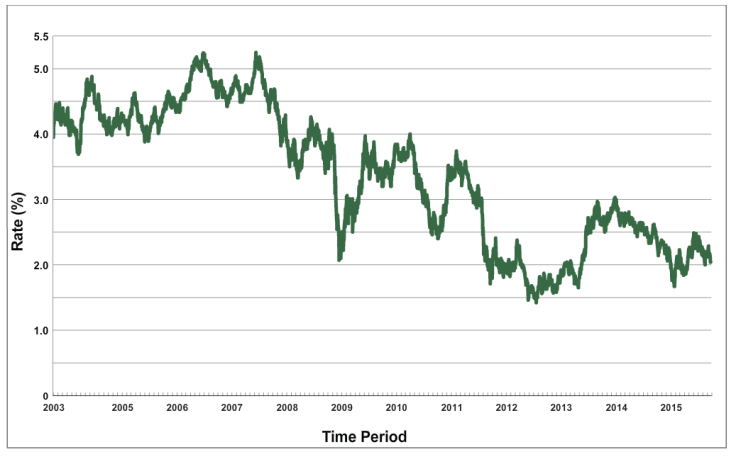China, Brazil Dump US Debt In Latest Signal Of Global Emerging Market Slowdown

The foreign feast on U.S. debt is over. For years, the central banks of emerging market countries have devoured U.S. debt in order to bolster their foreign currency reserves. The trend intensified amid booming trade surpluses fueled largely by the sale of commodities, from soybeans to crude. Now, amid a global economic slowdown spurred by China, large purchasers of U.S. Treasury bonds -- including China, Russia and Brazil -- are dumping U.S. debt at a rapid pace to increase government revenue.
The recent sell-off is the biggest decline in foreign official demand for U.S. notes and bonds since records began in 1978. Deutsche Bank Securities says foreign central banks have sold in the 12 months ended July $123 billion in U.S. Treasury debt maturing within a year. That's compared with a peak of $230 billion in purchases of U.S. debt in the year ended January 2013.
As major holders of U.S. debt unload bonds, the Wall Street Journal reported there’s still plenty of demand from foreign and U.S. companies that are buying U.S. debt to shore up their safe-harbor investments amid a global economic downturn. As a result, U.S. Treasury bond yields are likely to remain low because central banks are finding plenty of private buyers. Bond yields increase when demand for bonds falls; so far there are plenty of buyers of U.S. debt to keep rates low.
“U.S. bond yields are not going to rise significantly unless we have much stronger growth and higher inflation,” Michael Pettis, professor of finance at Guanghua School of Management at Peking University in Beijing, told the Journal, addressing concerns that China would disrupt global markets by selling too much of its U.S. debt.
The benchmark 10-year U.S. T-bill is hovering around 2 percent this week, down from around 3 percent in 2013. That's well below the 4 to 5 percent yields before the global economic downturn in 2009.

The People’s Bank of China, which shocked global markets by devaluing its currency on Aug. 11, has been selling dollars and buying yuan to prevent the currency from dropping below its target rate. As China sells U.S. bonds to control its currency, Russia, Taiwan, Norway and Brazil have also been selling U.S. debt to bolster their currencies.
Even so, China remains the largest foreign owner of U.S. debt, with $1.244 trillion as of May 2015, according to the Congressional Research Service. Japan is second with $1.231 trillion. Together the countries hold about 40 percent of foreign-owned debt. About 52 percent of U.S. debt is owed internally.
© Copyright IBTimes 2024. All rights reserved.





















